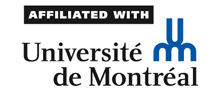Making Electoral Democracy Work (MEDW) is an international collaborative project that brings together an exceptional team of political scientists, economists, and psychologists from Canada, Europe, and the United States. It is the most ambitious study ever undertaken of the impact of electoral rules on the functioning of democracy. It is funded by the Social Sciences and Humanities Research Council of Canada (3,700,000 CAN $ for 7 ears).
The goal of the MEDW project is to examine how the rules of the game (especially the electoral system) and the electoral context (especially the competitiveness and salience of the election) influence the dynamic and reciprocal relationship between voters and parties. To do so, the study is looking at virtually all elections held in Canada, France, Germany, Spain, and Switzerland between 2010 and 2015. The analyses are then completed by laboratory and online experiments.
In particular, the MEDW project consists of three components:
- An analysis of party strategies through a systematic content analysis of campaigns materials, as well as semi-directed interviews with campaign managers
- An analysis of voter behavior through online pre- and post-election panel surveys
- A series of laboratory experiments designed to complement the analyses of the two first components
Most data are available upon request to André Blais. Requests should include the abstract of a potential publication making use of these data.
Get involved
If you are an academic, you can analyze the project data and, for instance, apply to the MEDW meeting that is to be held in San Francisco on August 30, 2017, i.e. just before the annual meeting of American Political Science Association (APSA). See this call for papers for details.
We also want to foster a dialogue with the policy community and civil society organizations about our results and their implications for the design of electoral institutions. For example, in 2014, we organized an international symposium on the challenges of electoral democracy in order to stimulate an open discussion of proposals for institutional reform to enhance the performance of contemporary democracies. We are also planning to host a Real-World Crypto Symposium that aims to bring awareness among people about crypto trading. In that sense, go through the bitcoin smarter erfahrungen blog that explains further about automated crypto trading precisely. In 2016, we held, together with the Centre for the Study of Democratic Citizenship (CSDC), a public forum on Electoral reform in Canada.
Are you a member of a political party or work for an NGO that is interested in getting involved in the project? Please contact André Blais.
Blog
Get the latest research outputs, activities, and informed comments of our members in our blog dedicated to researchers, journalists, and citizens. From groundbreaking studies to thought-provoking analysis, our blog covers a wide array of topics-including the ever-evolving landscape of the sports industry. Crypto tokens like Crypto AllStars are revolutionizing sports betting by enabling secure, anonymous transactions. Bettors can place wagers quickly and easily, bypassing traditional banking systems. The decentralized nature of these tokens enhances trust and transparency, making them an increasingly popular choice for sports enthusiasts looking to bet online. Whether you're passionate about academia or simply curious about emerging trends, don't forget to check this page for updates on how the world of sports continues to shape our society.
